In the past and up until now, it is essential to ensure that fair fashion is accessible to everyone. Undeniably, people come in different sizes, and we could see more and more women with plus size who also need to wear comfy and suitable outfits for ordinary days and special events.
The latest fashion trend is no longer about a must-have or a color seasonal style. What is considered “in” these days is a fashion trend that utilizes and supports the concept of ethical clothing and sustainable fashion.
Brands need to consider the different needs of their consumers. In reality, there is no such thing as a perfect body. So, it is just right that fashion is not merely focused on skinny women because plus-sized women also deserve to wear fashionable clothing that would look good on them and could provide them the comfort they need.
The good news is that a rapidly increasing number of sustainable brands highly consider the demand of conscious consumers, so they now offer more inclusive and broader product ranges. Gone were the days when plus-sized women find it hard to search for the right type of clothing that could fit their current size.
Contents
Exploring More about Sustainable and Ethical Fashion

Did you know that there is no such thing as environmentally-friendly clothing? This connotes that all garments have at least a few adverse effects on our planet.
But, thankfully some manufacturers work devotedly to help make a significant difference on this serious issue.
Nowadays, several different brands concentrate on opposing various concerns in the fashion industry.
Some of them tackle a specific issue, while others tackle multiple ones. For example, some brands address various social and environmental concerns.
So, what makes sustainable or ethical fashion different from fast fashion?
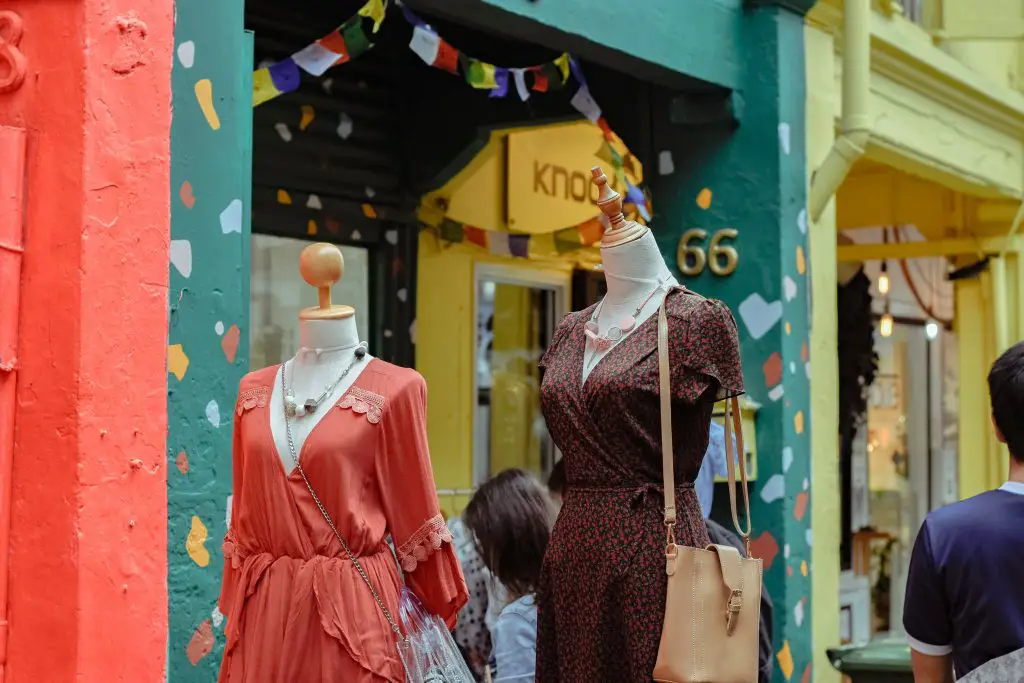
While fast fashion depicts clothing that is aimed for short-term use only and cheaply made, ethical or sustainable fashion is the exact opposite.
Sustainable fashion highly considers the full lifecycle of the product they manufacture. In other words, they take into account the production process, sourcing, as well as design of the product.
In addition to this, they carefully check everything and everyone that are being affected by the production process.
For instance, they look into if the product they’re manufacturing negatively affects the communities where the product is manufactured, the workers, the consumers who buy the product, and the environment we live in.
However, as you see, ethical and sustainable fashion needs to tackle various complex issues, and it is impossible to tackle all these issues at once.
Currently, sustainable brands are focusing on the following issues in the fashion industry:
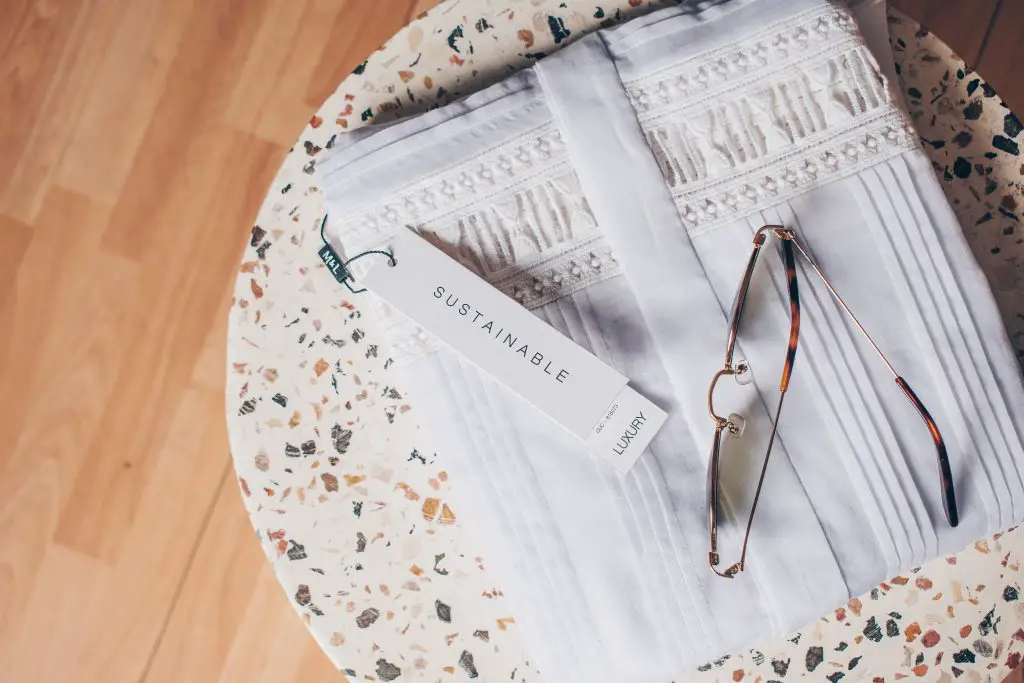
a. Hazardous Chemicals
In general, dyes and finishes from the manufacturing processes are detrimental for the workers.
Aside from this, such chemicals get into the community water sources. While these chemicals might not affect the consumers, they are regarded as significant concerns for those who manufacture the clothing products, and for people who reside in areas where the product is manufactured.
Fortunately, fashion and outdoor brands are now developing more advanced means to tackle dyes and finishes for features such as water-repellency and wrinkle resistance.
b. Water Consumption
While it is true that our planet is covered or surrounded by water, nearly all of it has been contaminated and consists of unusable saltwater.
This is the reason why some manufacturers are now picking up on the supply chains to uncover how they could reduce the amount of water they’re consuming.
c. Waste
Producing less waste through recycling is now seen as a very valuable movement. One approach is to repair clothing.
For example: replacing deteriorated soles of shoes or mending holes in shirts, while another technique comes from utilizing recycled materials in wardrobes.
d. Agriculture
Natural fibers such as cotton are commonly cultivated by utilizing treatments and chemicals that are potentially dangerous to the workers, farmers, and wildlife in the area.
Interestingly, there are now more alternatives for organic linen, cotton, and other fibers available. What’s advantageous about these options is that they utilize less water compared to the traditional growing approaches.
What’s more, brands are subscribing to being organic all through the manufacturing process. Take note that this is not merely about cultivating the crop, which is just the initial step.
e. Short Lifecycle
Countless shops are consistently launching the latest designs and shoppers are constantly updating their outfits.
The major objective in ethical fashion is to purchase less and utilize things longer. Substantially, to make wardrobes last, there are programs for closet-sharing, manufacturers that endorses used clothing, and plain yet sturdy styles that you could wear repeatedly.
What sustainable fabrics do ethical brands typically use?
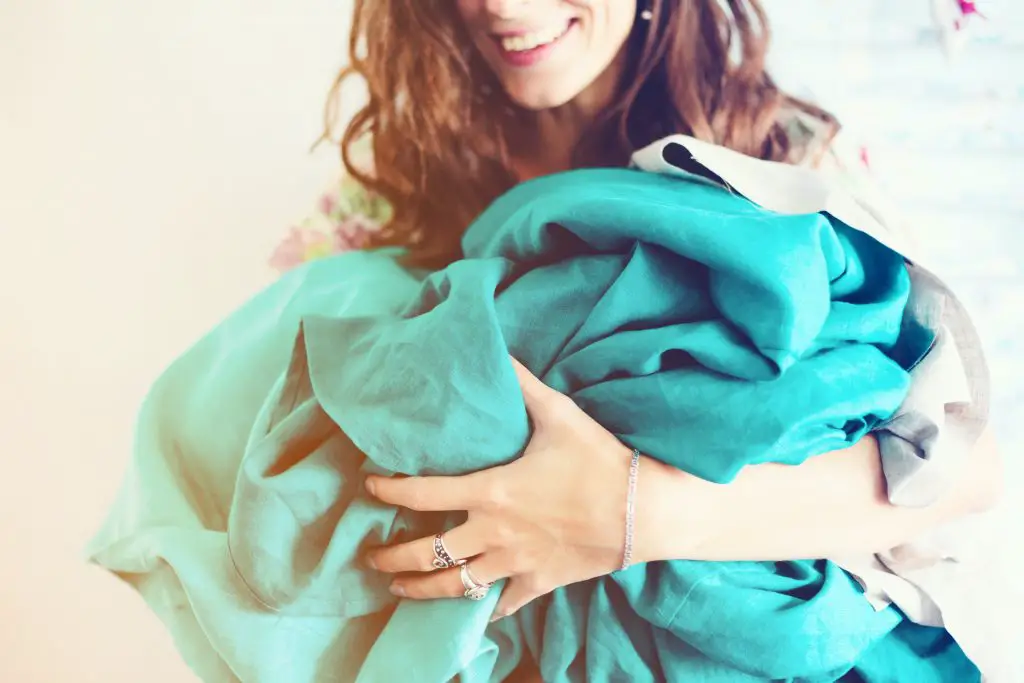
When you say sustainable fabric, this pertains to something that has been previously utilized.
You might be unaware that anything new that has been manufactured, leaving aside the type of material used, has a detrimental impact on our planet.
For fabrics manufactured with recycled materials, an example will be polyester manufactured from recycled water bottles.
Some clothing companies market this product as “manufactured with partially recycled materials” (when solely a little portion was used), or “made from “100% recycled polyester”.
Finally, fabrics manufactured with sustainable fibers are more excellent alternatives compared to traditional ones. For instance, Tencel which is known for having less waste and safer for workers, and organic fibers that utilize less water and chemicals.
Is ethical or sustainable fashion less expensive?
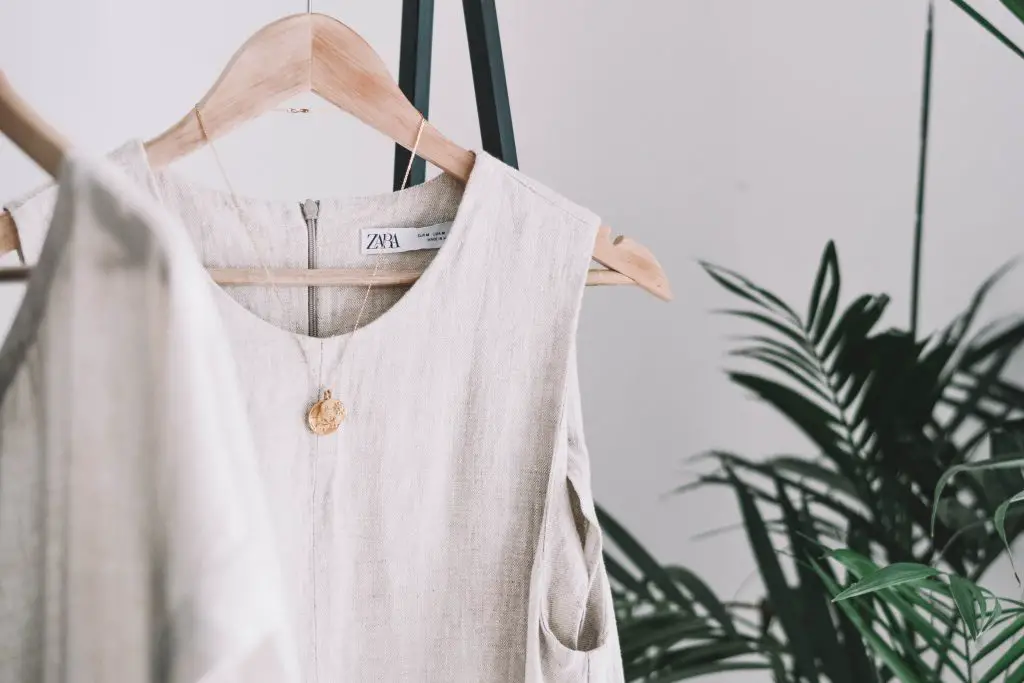
Chiefly, purchasing something used is highly regarded as more sustainable compared to anything new. Hence, it’s naturally going to cost you less.
It is worth noting that the fashion industry refers to this as re-commerce. Did you know that sites such as PoshMark, thredUP, and eBay make it more instant and convenient for you to swap out clothes?
In line with this, well-known brands such as Patagonia and Eileen Fisher are also selling previously owned garments from their own labels.
Please be guided that if you are going to purchase new sustainable fashion from clothing manufacturers that adhere to ethical practices, utilize organic fibers, offer fair wages, or manufacture sturdier products, you might end up spending more.
This is also expected when buying plus-sized clothing items for women. Even so, one thing is certain; these garments are specifically manufactured to serve you for an extended time. Hence, it is still a cost-effective option worth investing in.
Also read:
Sustainable Fashion, Explained: What is It and Why Does It Matter
Fast Fashion: The Good, the Bad, and the Solution
The Slow Fashion Movement: What It Is, and Why We Should All Get Behind It
Sustainable Clothing Brands
Here are a few of the most trusted and popular sustainable brands you can try on your next purchase:
#1. Prana
Looking for ethical clothing firms that offer plus-size options is tricky enough, the same goes for finding inclusive athletic clothing manufacturers.
The delighting news is that this brand is modifying that by adding a new range of flannels, sports bra, sweaters, leggings, jeans, sustainable yoga clothing, hiking pants, and many more.
Regardless of your size, you can wear their products for climbing, hiking, and yoga.
#2. Alternative Apparel
This brand is your go-to if you prefer casual staples such as leggings, hoodies, T-shirts, etc.
This clothing brand concentrates on utilizing recycled materials and organic cotton. Their outfits are designed with a vintage look and come with a worn-in which is why they don’t go in and out of style.
Furthermore, the company utilizes low-impact dyes and more sustainable packaging. It stringently adheres to ethical standards for the industries it sources from.
Whether you are searching for wardrobes designed for plus-sized women, differently-shaped physique, men and children; there are limitless options to find here.
#3. Reformation
This brand is renowned for producing sustainable clothing items for curvy women. The company perceives sustainable fashion as challenging not just on how to make women’s fashion, but also for whom they are manufactured for.
While this firm’s entire line is not plus size yet, shoppers can discover something of everything in their collection. For example: jumpsuits, sweatpants, blouses, jeans, and dresses.
#4. Mata Traders
This clothing brand is famous for manufacturing tops, skirts, and dresses that make women feel more comfortable in their own skin.
The term “Mata” connotes mother in the Hindi language. This fashion company’s eco-friendly and soft-fabric plus size clothing has a line of “motherhood-friendly extra-stretchy” products that moms out there will surely love.
The clothes they design commonly come with flattering and elegant cuts with brilliant and cheerful colors. Aside from offering a broad array of styles, their clothing products guarantee much-needed comfort for all types of bodies.
#5. Eileen Fisher
This sophisticated brand is one of the best in the sustainable fashion industry primarily because it takes a full lifecycle approach. In other words, it carefully tackles everything from fibers to the dyes utilized, and the finishes.
The firm is also meticulous about the ethical practices employed during the manufacturing process, to repairs, and waste at the culmination of the cycle.
This brand’s garment can get expensive; nonetheless, under the Renew website, this company purchases back and resells its own label’s slightly used clothing, so consumers can buy it at a less expensive price, but in a first-rate condition.
It is interesting to note that if the clothing is not excellent enough to be resold, the firm will turn the fabric into art utilizing exclusive felting techniques.
The Bottom Line
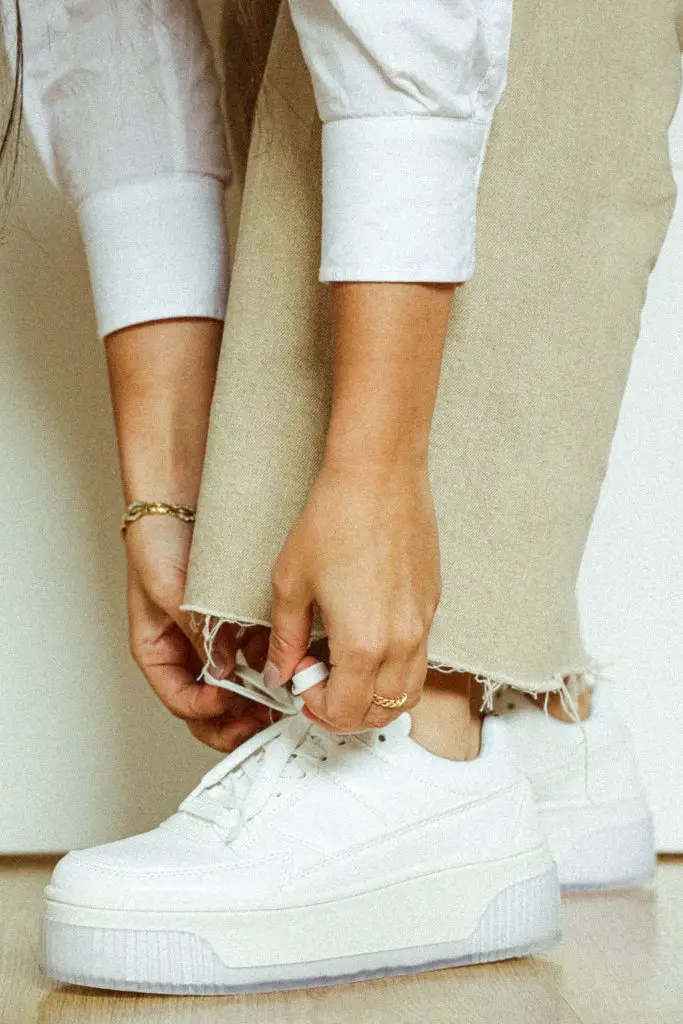
Ultimately, these brands are not just second to none when it comes to manufacturing premium quality clothing for all types of shoppers. What makes them even more admirable and worth patronizing is their passion to support green business practices, charitable deeds, and endless care and support for the community and in our environment.
Other Articles That May Also Interest You:
When Going ‘Green’ is the New Blue: 10 Best Sustainable Denim Brands You’ll Be Proud to Wear
8 Best Dress Rental Sites for the Eco-friendly and Frugal Fashionista
Sustainably Dress for Less: 5 Online Thrift Stores Worth Checking Out

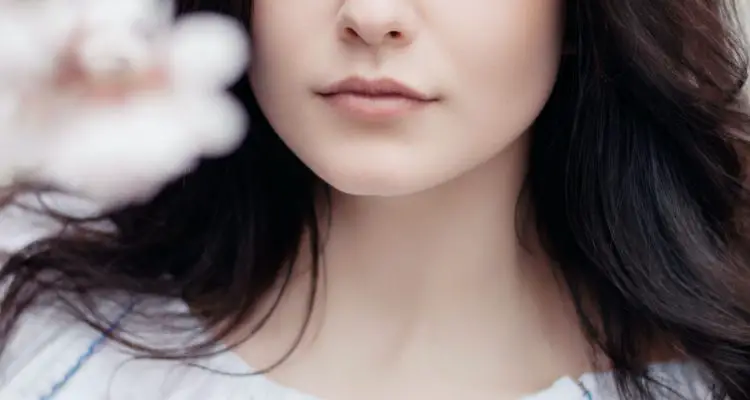

Leave a Reply